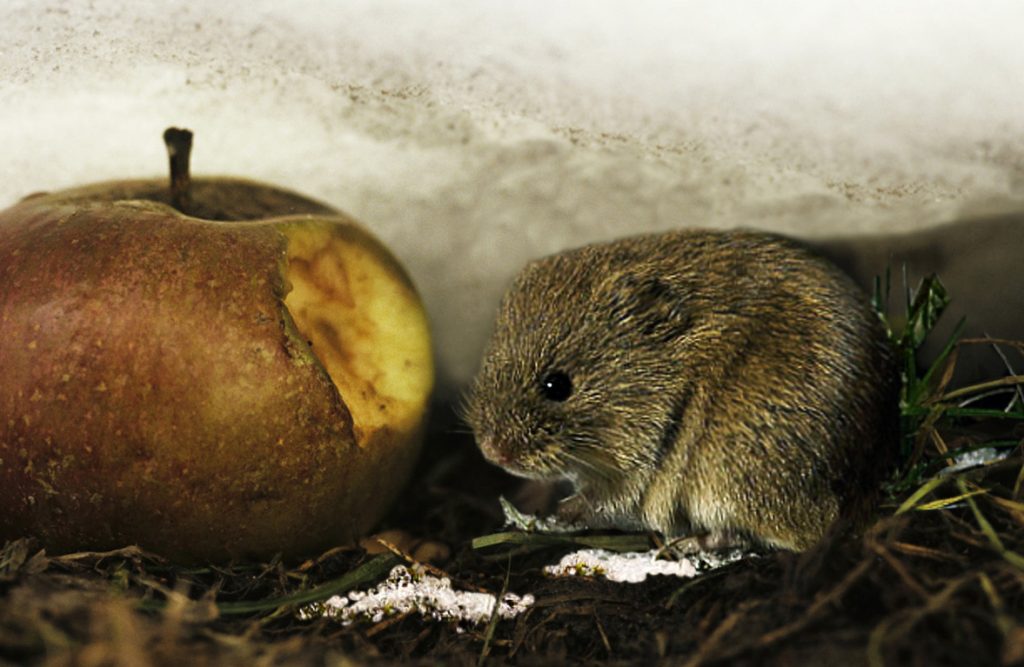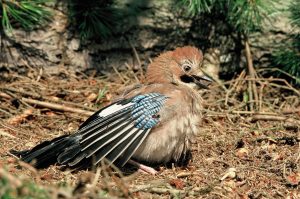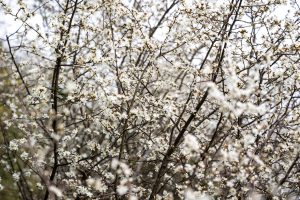Cold comfort
Although the winter solstice is past and days are now slowly but surely getting longer, the coldest weather is still to come. Even down here in South Devon within a stone's throw of the English Riviera. The reason for our most severe season is astronomical. The shortest day length happens when the North Pole tilts furthest away from the Sun, giving us the least amount of daylight. So spare a thought if you are a polar bear living further north inside the Arctic Circle, because winter there is dark all day.
Ice and snow are a mixed blessing and wildlife cope with the chilling conditions in different ways. Many birds migrate south for winter, while a few furry creatures fall into a sleep, so deep they are barely alive. Others remain active, growing extra long coats to protect themselves from the bitter cold. Luckily here in the sunny subtropics of South Devon, winter temperatures seldom get close to extreme. Although last winter, when the 'Beast from the East' hit us twice, temperatures over nearby Dartmoor dropped to minus 10°C. We even had snow on the east coast beaches! Such conditions demand special tactics to survive. Strange as it may seem, snow can help by providing a crystal blanket under which to hide and keep out freezing winds.
Small creatures cool the quickest but the feathers of bird provide highly efficient insulation. Thick fur does the same for mammals. One of the most common is the field vole. Eating mainly grass and roots with occasional fruit, they continue to forage in deep winter by making a network of tunnels under the snow to find food. It could take several days for a vole to demolish a large windfall apple. Which is not surprising when a large vole only weigh the same as half a mince pie. Of all the creatures on our farm, voles have the most unenviable position. They are high on the menu for predators. Even darkness offers no respite. Owls and foxes take over the night shift, listening for the tell tale nibbling noise made by a potential meal. But with luck and a fair wind to disguise the sounds of eating, most voles can feast safely in their snowy dining room.
Few birds die of cold, they just starve to death. Which is why regular supplementary feeding is so important for our feathered friends and some of their furry neighbours. Not only do we put out peanuts and seed, but I also save windfall apples for the coldest days to scatter around our bird table.
© Andrew Cooper
Ice and snow are a mixed blessing and wildlife cope with the chilling conditions in different ways. Many birds migrate south for winter, while a few furry creatures fall into a sleep, so deep they are barely alive. Others remain active, growing extra long coats to protect themselves from the bitter cold. Luckily here in the sunny subtropics of South Devon, winter temperatures seldom get close to extreme. Although last winter, when the 'Beast from the East' hit us twice, temperatures over nearby Dartmoor dropped to minus 10°C. We even had snow on the east coast beaches! Such conditions demand special tactics to survive. Strange as it may seem, snow can help by providing a crystal blanket under which to hide and keep out freezing winds.
Small creatures cool the quickest but the feathers of bird provide highly efficient insulation. Thick fur does the same for mammals. One of the most common is the field vole. Eating mainly grass and roots with occasional fruit, they continue to forage in deep winter by making a network of tunnels under the snow to find food. It could take several days for a vole to demolish a large windfall apple. Which is not surprising when a large vole only weigh the same as half a mince pie. Of all the creatures on our farm, voles have the most unenviable position. They are high on the menu for predators. Even darkness offers no respite. Owls and foxes take over the night shift, listening for the tell tale nibbling noise made by a potential meal. But with luck and a fair wind to disguise the sounds of eating, most voles can feast safely in their snowy dining room.
Few birds die of cold, they just starve to death. Which is why regular supplementary feeding is so important for our feathered friends and some of their furry neighbours. Not only do we put out peanuts and seed, but I also save windfall apples for the coldest days to scatter around our bird table.
© Andrew Cooper



